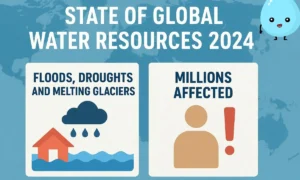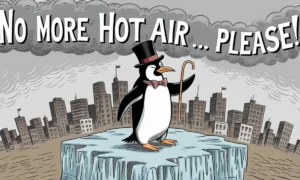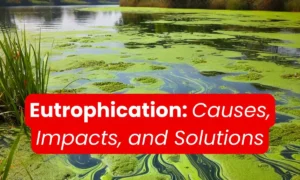From COP28’s UAE Consensus to COP29’s Big Funding Goals: Global Push to Meet Climate Targets

Last year’s UNFCCC Climate Conference (COP28) was held in the UAE. Of the many agendas in global climate action, COP28 also assessed the progress made on the 2015 Paris Agreement.
The world was falling short of achieving the agreement’s climate goals. Termed as a landmark agreement, the Paris Agreement came into force in 2016 and is ratified by nearly 200 countries.
Global climate actors agreed with the scientific notion that curbing global greenhouse gas emissions is urgent. This could be pursued if the world transitioned away from fossil fuels; one of the key themes of 2023’s global climate summit in the Gulf State.
According to the United Nations Environment Program’s 15th Emissions Gap Report 2024, data shows that global greenhouse gas emissions in 2023 reached a record high of 57.1 gigatons of CO₂ equivalent—a 1.3% increase from last year.
At COP28, the world reached an agreement on the UAE Consensus, which aimed to take real action to fight climate change.
The agreement was based on the notion that world nations needed to transition to renewable energy in a just, orderly, and equitable way.
This plan sets important targets: triple global renewable energy, double energy efficiency, and end deforestation by 2030.
Also Read: WMO’s State of the Climate 2024 Report Issues Red Alert as COP29 Kicks Off in Azerbaijan
COP28 made some progress at the negotiation table. However, climate change mitigation and adaptation measures need implementation on the ground. Climate experts say it’s time to do more in climate action and secure more funding if we’re serious about hitting these goals.
Sultan Al Jaber, group CEO of the Abu Dhabi National Oil Company (ADNOC) and the president of COP28 talks about the UAE Consensus in his latest op-ed published in TIME highlighting key issues: without enough funding in climate finance and transitioning to renewable energy production, we won’t reach our climate targets.
According to Al Jaber, COP28 mobilized $85 billion in climate commitments, including $30 billion for Altérra, the world’s leading private climate investment fund.
Another $700 million fund was pledged to help vulnerable countries facing climate change consequences in loss and damage fund.
But this was just the start. COP29, set to happen in Azerbaijan from November 11 to 22nd, is going to focus on creating a new plan for global climate finance to ensure every developing country has access to climate finance in climate action.
COP29 is set to finalize the New Collective Quantified Goal (NCQG) for climate finance from 2025 onwards.
Al Jaber states that 473 GW of renewable capacity was added to world power last year. More renewable energy projects are forefront of the next decade’s “green” policies.
At COP28, Al Jaber included all sectors in climate talks, even the oil and gas industry. This move received some criticism from environmental movements and climate actors. Al Jaber believes it was essential. The Oil & Gas Decarbonization Charter, launched at COP28, aims to cut all methane emissions by 2030 and reach net-zero emissions by 2050. Signatories to the Charter have committed to going net-zero on methane emissions in the near future. Methane, more potent than carbon dioxide when it comes to the greenhouse effect, is one of the key gases that is listed in the Kyoto Protocol.
The future poses some great opportunities and a few big challenges. New tech like Generative AI could reduce emissions between 5% to 10% by 2030. However, it also requires a lot of electricity to run its data centers.
Data centers alone could more than double their energy use by 2030. According to Al Jaber, managing this demand will need cooperation between tech, energy, and finance industries to find the most sustainable solutions.
“Generative AI meanwhile is predicted to be able to boost global GDP by at least $7 trillion over a 10-year period, and cut greenhouse gas emissions by between 5-10% by 2030 through helping scale climate solutions. AI’s exponential-growth, however, is driving electricity demand from data centers, which could more than double by 2030.“
Writes Sultan Al Jaber
After COP28 in 2023, attention this year turns to Baku Azerbaijan for the UN’s 2024 Global Climate Summit (COP29), and there is hope to turn the UAE Consensus goals into action.






